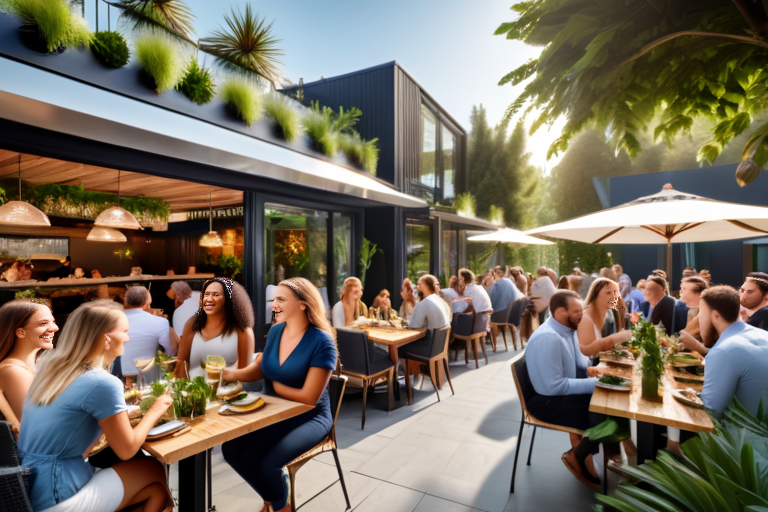Mastering Restaurant SEO for Online Success

Defining Your SEO Strategy
To establish a robust online presence, it’s crucial to define your SEO strategy. This involves identifying your geographic area, researching keyword terms and phrases that are relevant to your business, and grouping them into high-level restaurant terms, niche-specific terms, and brand terms. For instance, if you own an Italian restaurant in New York, your key terms might include “Italian restaurants in NYC,” “best pasta in New York,” or “NYC Italian cuisine.” Utilizing tools like Google Keyword Planner can help you find the most appropriate keywords for your business.
Dominating Local Search
Dominating local search is paramount for any restaurant. This involves claiming and standardizing your data across major local search properties like Google My Business, Yelp, and other relevant directories. Ensure your NAP (Name, Address, Phone Number) information is accurate and consistent across all platforms. Focus on the directories that matter most to your business and audience. For example, if you’re a restaurant in a small town, being listed in local community newsletters or event calendars can be just as valuable as major national directories.
Engaging with Customers on Social Media
Developing a social media strategy is essential for engaging with followers and driving users to your site. Promote content that funnels visitors to your main website, such as behind-the-scenes kitchen tours, chef interviews, or sneak peeks of new menu items. Use platforms like Instagram and Facebook to share high-quality visuals and stories about your restaurant. Encourage engagement by asking questions, hosting giveaways, or creating a poll related to your business.
Encouraging Reviews & Testimonials
Encouraging online reviews is a powerful way to boost your visibility in search results. Use structured data markup to have star ratings appear in search results, providing an instant reason for users to click on your site. Getting online reviews helps bring up your score and builds credibility with potential customers. Platforms like Yelp and Google Reviews are crucial, but so are the review sections on your own website, where you can showcase testimonials and encourage feedback directly from customers.
Creating Unique Content
Ensuring unique content on your website is vital for attracting and retaining users. This means presenting menus, promotions, and more through video, photography, and graphics that capture the essence of your restaurant’s brand and culinary experience. For instance, a video showcasing the preparation of a signature dish or a photo gallery of your restaurant’s interior can make your site more engaging and informative.
Considering Content Localization
Providing cues and context about the location of your restaurant is crucial for both users and search engines. Tailor your content to the community and neighborhood, highlighting local ingredients, community events you participate in, or how your menu reflects the regional flavors. This localization helps search engines understand your relevance to specific geographic searches.
Applying Basic On-Page SEO Best Practices
Applying basic on-page SEO best practices is fundamental. Use robots.txt, XML sitemap, and Google Search Console to ensure proper indexing and crawling of your site. Ensure unique and keyword-specific page URLs, title tags, meta description tags, headings, page copy, and image alt attributes that reflect your targeted keywords. For example, if you have a page for reservations, the title tag could be “Book a Table - [Your Restaurant Name]” and the meta description could invite users to “Make a reservation at [Your Restaurant Name] and enjoy our renowned [cuisine type].”
Thinking Mobile First
Ensuring your website is responsive and passes mobile-friendly tests is no longer an option but a necessity. Prioritize page load speed, as slow sites can deter users and negatively impact search rankings. Provide a great mobile user experience by making sure menus are easy to navigate, images are optimized for fast loading, and contact information is easily accessible.
Implementing Schema “Restaurants” Markup
Implementing Schema “Restaurants” markup from Schema.org helps build context for search engines about your business and can lead to enhanced search results. This includes adding markup to your website that describes your restaurant’s hours, menu, pricing, and reviews, making it easier for search engines to understand and possibly display this information directly in search results.
Measuring Your Efforts
Measuring the success of your SEO efforts is crucial for understanding what works and what needs improvement. Track visibility, engagement, and conversion metrics as deeply as possible. Identify progress metrics tied to your goals, whether it’s an increase in reservations, online orders, or simply the number of people who know about your restaurant. Tools like Google Analytics can provide insights into how users find and interact with your site.
Leveraging AI
Finally, don’t ignore the power of AI in scaling content production, creating efficiencies, and engaging with users in search. While it’s essential to maintain the unique value of your restaurant’s brand, AI tools can help generate content ideas, automate routine SEO tasks, or even assist in personalizing user experiences based on their search history and preferences. Use AI with care, ensuring that the automation enhances rather than replaces the personal touch and unique storytelling that makes your restaurant stand out.

 Never miss an update from us, subscribe to our newsletter
Never miss an update from us, subscribe to our newsletter